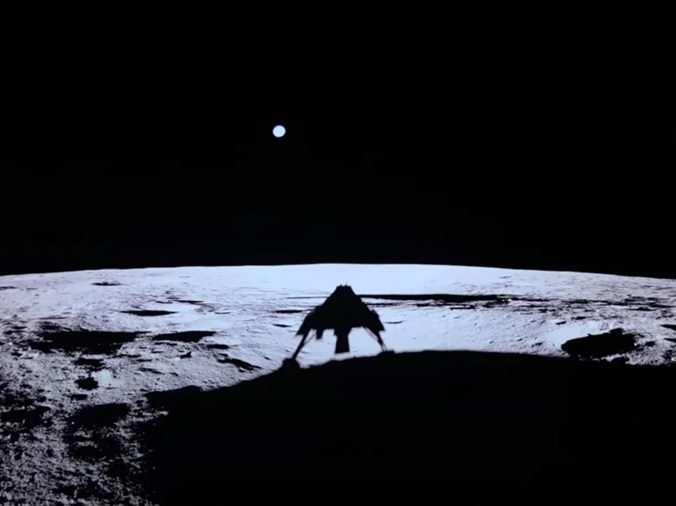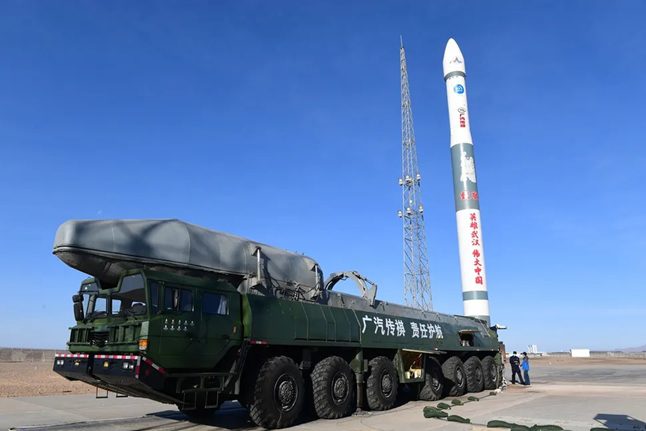We’re keeping an eye on space news on the web so you don’t have to wade through it all.
Apart from our own stories, here is our round-up of the most important, and interesting, space news stories of May (space orders can be found in another post):
Future Human Spaceflight
![]() Polaris Dawn will be the first privately mounted human spaceflight mission involving a spacewalk when it is mounted – probably either late this year, or more likely, next year. And to do it they need a suitable space suit which is nearing completion at SpaceX.
Polaris Dawn will be the first privately mounted human spaceflight mission involving a spacewalk when it is mounted – probably either late this year, or more likely, next year. And to do it they need a suitable space suit which is nearing completion at SpaceX.
While Sierra Nevada’s Dream Chaser is a “robotic/remotely controlled” mini-shuttle without yet the capability to put crew aboard, its makers are preparing for its first cargo flight later this year. With continued delays to Boeing’s human carrying capsule Starliner – that latest due to a valve issue, there would be considerable embarrassment for Boeing if it gets beaten into orbit by Dream Chaser which it beat in the NASA down select for crewed flights. Meantime, Payload also looks at the numbers for Boeing’s crew transportation business here
While many want the Hubble Space Telescope (HST) to remain in service NASA does not appear to like a planned private Polaris mission to save Hubble
French and Belgian ESA astronauts are booked to go to ISS (in 2026)
The planned round the Moon mission which was being financed by a Japanese billionaire has been cancelled.
Space Technology and Exploration:
![]() Getting to Mars quickly has always been a design aim for any human exploration mission – mainly to reduce amount of food and water needed – and so an innovative Pulsed Plasma rocket technology by Howe Industries which might deliver this has been grasped wholeheartedly by NASA JPL for one of its tech concept awards. Other award winners for the next phase of research are here.
Getting to Mars quickly has always been a design aim for any human exploration mission – mainly to reduce amount of food and water needed – and so an innovative Pulsed Plasma rocket technology by Howe Industries which might deliver this has been grasped wholeheartedly by NASA JPL for one of its tech concept awards. Other award winners for the next phase of research are here.
Portal Space has received a small US$3 million contract to develop its highly mobile (high delta-V) Supernova bus/platform using solar thermal warning to heat propellant
Space Diplomacy and Defence
![]()
Verbal battles continue over suspicions of new weapons in space – especially nuclear anti-satellite weapons which USA is accusing Russia of being about to field. Meanwhile Russia has vetoed a proposal for a UN ban on nuclear weapons in space, and then made its own counterproposal. Meanwhile recent Russian launched Cosmos 2576 has been accused by USA of being a Russian non-nuclear anti-satellite “killer sat” either able to drive close to an enemy satellite to destroy it either via an explosion or via a projectile strike.
Battlefield practicalities starts discussion about who will task US Ground Moving Target Indicator (GMTI) satellites
Inversion Space targets military market with ‘warehouses in space’ – a pathfinder mission dubbed “Ray” is scheduled for launch as early as October on the SpaceX Transporter-12 rideshare mission
In what can viewed as a successor to the Link 16 offering overall battlefield stituational views via comms technology, in 2025 the US Air Force is planning to demo an airborne terminal capable of using both military and commercial comsat links.
While the US government was quietly irked that Elon Musk unilaterally limited the use of the Starlink constellation by Ukraine (part of the reason it has started launching its own Starlink-based Starshield system) it does want to prevent Russia’s military’s surreptsious use of Starlink
Space Agencies
 While the international Exomars programme – and especially Russia’s participation – had been derailed by Russia’s invasion of Ukraine, NASA and ESA are putting the pieces of the plan back together. NASA and the European Space Agency (ESA) have completed an agreement to finalise the construction of the Mars Rover Rosalind Franklin.
While the international Exomars programme – and especially Russia’s participation – had been derailed by Russia’s invasion of Ukraine, NASA and ESA are putting the pieces of the plan back together. NASA and the European Space Agency (ESA) have completed an agreement to finalise the construction of the Mars Rover Rosalind Franklin.
There is concern that NASA budget cuts are going to disproportionately hit science missions – even on-going ones like the venerable Chandra X-ray space telescope. As such, A letter of concern by US Congress representatives asks for more NASA science funding.
ESA asks two firms Thales Alenia and the Exploration Company to do initial designs for LEO cargo craft.
Space Companies/Money
![]() While sales at Elon Musk’s other major commercial interest Tesla are not going as well as he probably hoped, there is genuine optimism at industry analyst Quilty over the growth prospects for SpaceX’s Starlink LEO comsat constellation revenues with a projected revenue of US$6.6 billion for 2024.
While sales at Elon Musk’s other major commercial interest Tesla are not going as well as he probably hoped, there is genuine optimism at industry analyst Quilty over the growth prospects for SpaceX’s Starlink LEO comsat constellation revenues with a projected revenue of US$6.6 billion for 2024.
Lockheed Martin gives up its planned acquisition of rest of sat maker Terran Orbital
Your going to need a bigger port: Port Canaveral should be expanded to help space industry says report
Of the smaller private companies, small satellite manufacturer OHB expects be taken private by investment firm KKR buying its shares. Going the other way, in terms of its type of ownership is the space debris removal firm Astroscale which is going public on the Tokyo stock exchange
While the recent SES/Intelsat tie up was an example of old school satellite companies consolidating to save themselves, the point about decreasing revenues due to other technologies (online and LEO satellite systems) taking subscribers was underlined by Payload Research’s analysis of Echostar’s revenue and subscriber decline
Some woes for imaging firm Satellogic as it lays off 13 percent of its workforce.
Viasat uses OneWeb for multi-orbit broadband maritime services and looks for other LEO capacity
Intelsat was MEV-2 tug to provide more years for docked Intelsat 10-02
Spaceports
![]() China realises that its needs more launch pads along the coast of Wenchang
China realises that its needs more launch pads along the coast of Wenchang
Even the Dominican Republic wants a piece of the launch action as it considers commercial spaceport
Space Arts
 While Scarlett Johansson’s voice has become a source of a legal fight – it has been allegedly mimicked by OpenAI’s ChapGPT artificial intelligence system without her permission – in her actress role Ms Johansson tries to fake moon landings in her new movie “Fly Me To The Moon”.
While Scarlett Johansson’s voice has become a source of a legal fight – it has been allegedly mimicked by OpenAI’s ChapGPT artificial intelligence system without her permission – in her actress role Ms Johansson tries to fake moon landings in her new movie “Fly Me To The Moon”.





